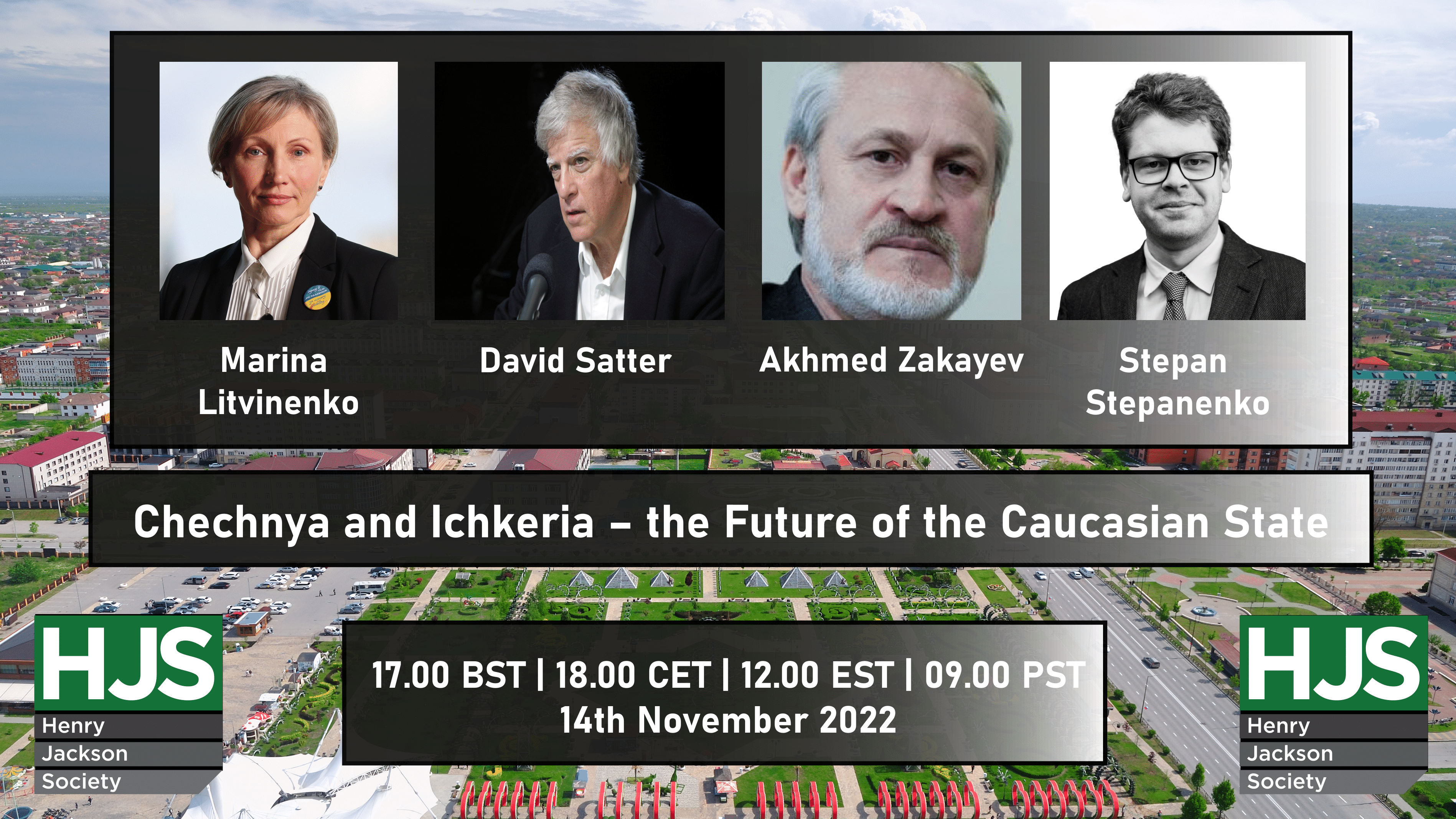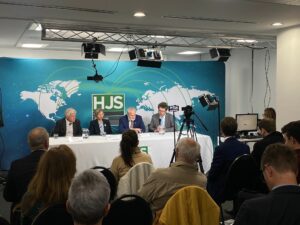Chechnya and Ichkeria – the Future of the Caucasian State

- This event has passed.
Chechnya and Ichkeria – the Future of the Caucasian State
14th November 2022 @ 5:00 pm - 6:00 pm

|
Russia’s war in Ukraine is dependent on the young men of the Caucasus and will likely wipe out a generation of its recruitment targets, destroying the future of the region. As the Russian forces struggle to evolve tactics beyond sending in poorly trained human waves in the face of the more motivated and organised Ukrainian army, the war is bringing woe and insolvency to families from the southern Russian regions who are losing their bread winners to Putin’s conscription. Faced with a choice of dying for a lost cause and prison, the local population of Chechnya (Ichkeria) have an uneasy decision to make. Since the Second Chechen War, those in opposition to the Kremlin-backed rulers of Chechnya have been forced to flee their homes or face persecution. Remaining vocal opponents of the Kadyrov regime and Putin, Chechen people in exile have fought against the regime that occupied their homeland and have supported those oppressed by Russia, including resisting the occupation forces in Ukraine. The Henry Jackson Society invites you to a panel discussion on the future of the Ichkerian people. The debate will centre around the role of the Ichkerian opposition in creating a state free of Kremlin rule. |

Marina Litvinenko is a public speaker and a campaigner for justice. Following the murder of her husband, Alexander Litvinenko, in November 2006, Marina began a decade long fight to get at the truth behind his assassination which resulted in the publication of a comprehensive public inquiry report in January 2016. Through this tragedy she found her own compelling voice, one that speaks with strength and conviction. Appearing in newspapers, magazines and on television screens, Marina has appealed to the public to heed the warning of her husband’s death. In her own way, she uses her public platform to continue what her husband started.
In 2007, she co-authored ‘Death of a Dissident: The Poisoning of Alexander Litvinenko and the Return of the KGB’ with Alex Goldfarb. In 2011 the two also published an updated version in Russian, ‘Sasha, Volodya, Boris: The Story of a Murder’. She attends and speaks at international seminars and conferences in the UK and abroad, participates in roundtable discussions and is involved in human rights causes.

David Satter is a historian and former Moscow correspondent who has written five books on Russia and the Soviet Union. His most recent book is “Never Speak to Strangers and Other Writing from Russia and the Soviet Union.” He was expelled from Russia in 2013 becoming the only American journalist to be expelled from Russia since the end of the Cold War.

Akhmed Zakayev is Prime Minister of the Chechen Republic’s government in exile. Zakayev was first trained as an actor and became the chairman of the Chechen Union of Theatrical Actors in 1991. A veteran of the First Chechen War, Zakayev was one of the signatories of the Chechen-Russian peace treaty when it was signed in 1997 and served as Chechen deputy prime minister after the war. When Russia attempted to implicate him in the planning of the Moscow theater siege in 2002, a British court refused to extradite Zakayev. He was granted political asylum in 2003. Zakayev leads a political movement which both opposed the turn in Chechen militancy towards Islamism an the current Russian-backed Chechen government of Ramzan Kadyrov. Between the Chechen Wars he co-authored a book, Wahhabism, The Kremlin’s Remedy Against National Liberation Movements, positing a link between Soviet Union support for terror groups and dictatorial states and political Islam’s growth. It was discovered in 2008 that Zakayev was targeted for assassination along with friend and acquaintance, Alexander Litvinenko, who was murdered by polonium-210 poisoning in 2006. He continues to campaign for Chechen independence from exile in London, and Russia continues to attempt his extradition.

Dr Stepan Stepanenko received his BA (Hons) and MA by research from the University of York and went on to complete a PhD at Ecole Pratique des Hautes Etudes of Paris Sciences et Lettres with a focus on Ukraine. In his academic career Stepan presented at a multitude of academic conferences and authored publications in peer reviewed journals, individually and in collaboration. He is also currently an Associate Member of the CNRS UMR 8167.
In British politics, Stepan has worked with the Conservative Party, running for election in the London Borough of Barnet in 2014 and co-founding the Conservative Friends of Ukraine in 2021. He continues to work on cross party humanitarian projects with a focus on Ukraine.
***
EVENT SUMMARY

The Henry Jackson Society was pleased to hold a panel discussion on the future of the Ichkerian people. Dr Stepan Stepanenko began the conversation by introducing the speakers. Akhmed Zakayev, by referring to the historical experience of the formation of statehood in nations under Russian Imperial state control, emphasised the chance of the Chechen Republic of Ichkeria becoming an independent state in a peaceful way against the background of Russia’s feasible defeat in the invasion of Ukraine. Marina Litvinenko highlighted the importance of the Chechen question in current discourse, pointing out that Russia uses the same tactic of dehumanising entire people in Ukraine as it did in Chechnya, by declaring them terrorists to justify military action and the occupation. David Satter summarised that the Russian regime and its representatives are based on criminal activity and have the sole purpose of maintaining their power by enslaving their citizens and committing crimes against them, as can been seen from the history of relations with Chechnya, recently recognised by the Ukrainian parliament as a Russian-occupied territory. Finally, the speakers answered questions on the future of the Caucasus region and Ichkeria in particular.
RELATED EVENTS
British General Election Campaigns 1830-2019: Can The Past Inform The Future?”
The British general election is the linchpin of our liberal democracy, and its results are often fundamental to how we live. With the next UK general election looming, there is therefore … Continued



